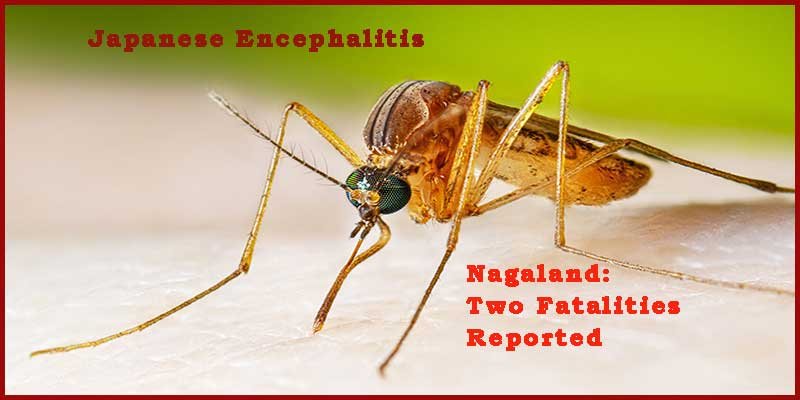Nagaland: Two Fatalities Reported as Japanese Encephalitis Cases Rise in State
Japanese Encephalitis, transmitted by Culex mosquitoes that breed in stagnant water sources like paddy fields and ponds, poses a significant threat during the monsoon.

KOHIMA– The Nagaland Health Department has confirmed two deaths due to Japanese Encephalitis (JE) in the state, with seven cases reported across Dimapur, Chümoukedima, and Niuland districts. The fatalities have heightened concerns as the state grapples with a surge in this mosquito-borne viral infection during the ongoing monsoon season.
According to Dr. Yartenla Jamir, Chief Medical Officer of Dimapur, the seven confirmed JE cases were identified through recent surveillance and vector monitoring activities under the Vector-Borne Disease Control Programme.
The two deaths occurred in the affected districts, underscoring the severity of the disease, which can cause brain inflammation and lead to serious complications or death.
Also Read- Nikhil Okram Crowned Mister International India 2025; Set to Represent India in Philippines
Japanese Encephalitis, transmitted by Culex mosquitoes that breed in stagnant water sources like paddy fields and ponds, poses a significant threat during the monsoon. The Health and Family Welfare Department noted that for every symptomatic JE case, there could be 300 to 1,000 asymptomatic infections, emphasizing the need for early detection and preventive measures.
Pigs, which serve as amplifying hosts, play a critical role in the virus’s transmission cycle, though the disease does not spread from person to person.
Also Read- Rahul Gandhi Accuses Assam CM of Corruption, Himanta Biswa Sarma Hits Back in Heated Political Clash
The state has intensified its response, with district health units directed to enhance disease surveillance, conduct fogging operations, and increase public awareness. Dimapur District Hospital has been designated as the sentinel site for JE testing in Nagaland. The Health Department has urged residents to seek immediate medical attention for symptoms such as high fever, headache, vomiting, or confusion, as early intervention is critical.
“There is no specific antiviral treatment for JE; medical care focuses on managing symptoms,” the department stated, highlighting the importance of prevention through vector control and community engagement. The advisory also calls for strengthened routine immunization and collaboration with NGOs, faith-based organizations, and community leaders to spread awareness.
Also Read- Violence Erupts During Eviction Drive in Goalpara; One Dead, Several Injured
The recent fatalities have prompted an urgent appeal from health officials for residents to adopt preventive measures, such as using mosquito nets and eliminating stagnant water sources, to curb the spread of this potentially deadly disease. As Nagaland continues to battle Japanese Encephalitis, authorities remain committed to controlling the outbreak through proactive measures and public cooperation.









